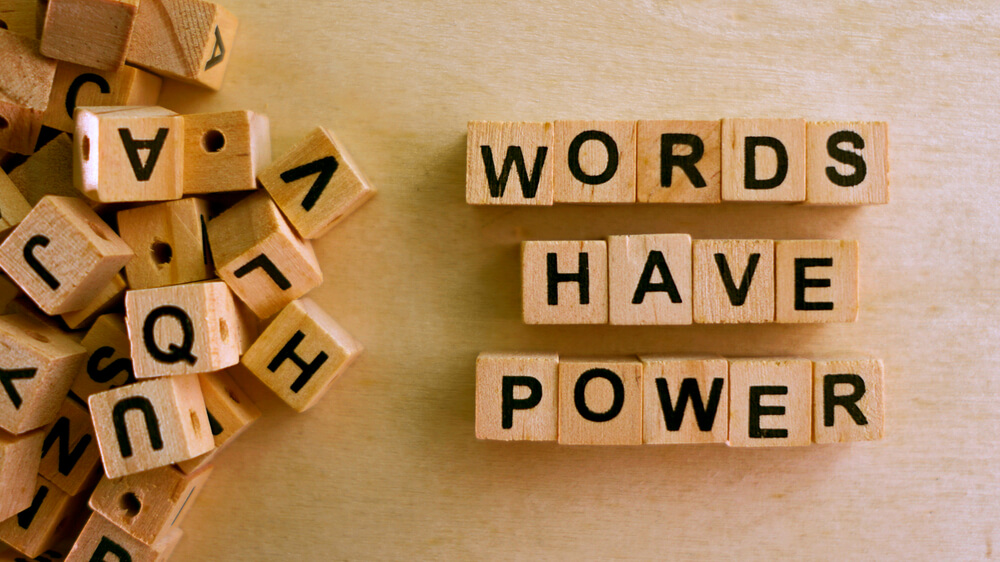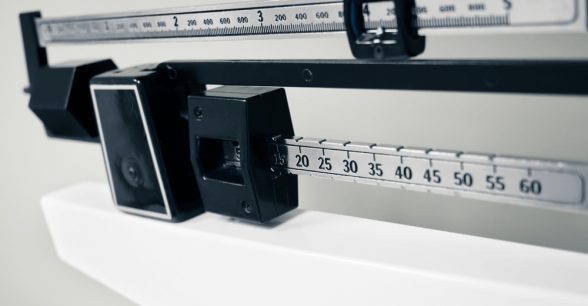Finding Peace On The Disability Terminology Battlefield
I was a junior in college, newly transferred from a small campus where I was the only wheelchair user to a bigger university known for its disabled community. “I don’t want to sit at the cripple table,” I said to a friend at lunch. At the time, I used the word “cripple” like a weapon and a suit of armor at once. It was an insult I could throw at people I thought were below me and a clear boundary I could set between me and them. You’re probably wondering who “they” are. I wish I had a clear answer, but there isn’t one.
I was desperate to fit in with a cool girl I met on my floor. She was disabled, confident, pretty, and she knew it. She also used the word cripple as a weapon against others, and armor to hide deeply-rooted insecurities about her disability from herself, I later discovered.
My own insecurities slowly eroded with time, but the word “cripple” stuck. Not because I needed a weapon against other disabled people. I actually need the power the word gives me to use against everyone else. I don’t say it for shock value anymore. I use the word cripple because sometimes no other word makes sense to me. I also use it because I can.
Words matter more than ever in this country where no one seems to care what words come out of the mouths of elected officials, no matter what their titles are. So, I support any effort to use kinder language. But abled people seem to think they know the best terms to use for the disabled community. In my opinion, the farther you stray from the objectivity of “disabled,” the weirder things get.
A “handicap” is a golf term or a noun that means “a disadvantage that makes achievement unusually difficult,” according to Merriam-Webster. But my body doesn’t make achievement as difficult as other people’s refusal to make the world accessible to it. So, that term doesn’t make sense. “Special needs” is society’s strange attempt at a euphemism for disability, to make people feel better about “othering” our needs in the first place. What does it actually mean? Terms trying to be even kinder than that are just tongue twisters that I always wonder why I bother to say when I could just say “disabled.”
For a long time, my rule of thumb was, “just say what or who I am.” So, Esme is always just fine. If you have to describe details about me that involve my mobility you could always say “disabled” or “wheelchair user.” Then a few years ago I learned about person-first language and I admit it was a revelation as someone who has always been hyper-aware of adults’ reactions to me. I was a woman with a disability, and taking time to explore what that meant via words and photographs helped me grow internally and as a writer. I felt more empowered knowing that I could ask people to call me a person first than I did when using the word “cripple” in safe and understanding spaces.
Then I began having conversations with disabled people on social media who didn’t feel as strongly as I did about person-first language. They argued that they didn’t have to remind people they were a person when describing other details about themselves. They said that if we really had to remind people we were humans, then we were further behind in our fight for disability rights than they thought. While I wondered if those people had ever heard the phrase “wheelchair coming through” or the word “liability” as much as I have (some were wheelchair users), I understood the point.
Those conversations equalized the battle between identity-first and person-first language in my mind, but part of me wishes that wasn’t the case. Even though the logic against person-first language makes sense, I let other people’s ideas pause the personal growth I was experiencing while using person-first terms. The words “woman with a disability” gave me permission to explore the world literally as a person first without considering the limitations that my disability would add. It may sound silly, but I’d truly never done that before. My disability will always be with me. So, I’d always factored it in when considering what I wanted to do in life. By deliberately ignoring it, I was giving myself permission to take chances.
Without these conversations, my current views wouldn’t have evolved into what they are today. I’m really proud that I’ve grown to accept myself and know how to support others while they are expressing and accepting themselves too.The disability community is diverse and there isn’t always agreement on “acceptable” words that we can use.I no longer use “cripple” to refer to other disabled people. I use it as an adjective — like the or “cripple” stall in a bathroom or the “crip” parking space — or to describe myself.
While most of the conversations I’ve had are discussions and not arguments, the more I think about them, the more I wish we would stop discussing words so much. While it’s important to educate non-disabled people about terminology and what words may be harmful, if another disabled person is using self-identifying language that I wouldn’t use in a non-hateful manner, I choose not to engage about it. It’s not my place to halt their journey.
What I’ve instituted isn’t a refusal to have any conversations about words at all. Non-disabled people still have a lot to learn about what I know, and I can still learn from other disabled people. But, I’m not the self-identifying terminology police. I’ve learned that you can take positive power away from someone’s chosen terms just by thinking about words too much.
If there is a war of words, if it’s “us” and “them,” the only fight I have the energy for anymore is against anyone using words to spread fear and hatred of people who are “different.” So, crip-up all the nouns you want to and announce your personhood wherever you want within a sentence, friends. If you prefer to say “differently-abled,” or “handicapped,” be my guest. I don’t know what terms are right or wrong, I only know the ones I prefer. Most disabled people would agree that the key to enduring the microaggressions we experience daily is choosing our battles carefully. So this essay is me walking off of the field. This crip, wheelchair-using disabled woman with Cerebral Palsy is off to find a bigger fight.
About Rooted In Rights
Rooted in Rights exists to amplify the perspectives of the disability community. Blog posts and storyteller videos that we publish and content we re-share on social media do not necessarily reflect the opinions or values of Rooted in Rights nor indicate an endorsement of a program or service by Rooted in Rights. We respect and aim to reflect the diversity of opinions and experiences of the disability community. Rooted in Rights seeks to highlight discussions, not direct them. Learn more about Rooted In Rights



